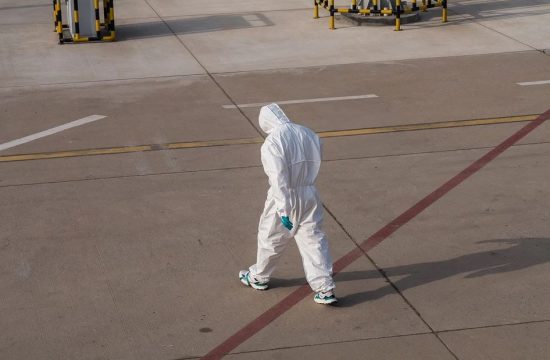
The United States Government has long supported the citizens of Bosnia and Herzegovina in their efforts to build a better future, US Ambassador to Bosnia Eric Nelson wrote in his Blog on the occasion of the upcoming local elections, adding that the US remains a true friend, committed to ensuring this support is effective and results-driven – but the final achievement depends on the people of Bosnia.
N1 published Ambassador Nelson's message to Bosnian citizens in its entirety:
“The ultimate purpose of foreign aid is to end the need for assistance. We look forward to the day when Bosnia has moved beyond dependence on assistance to self-reliance. On October first, the United States Agency for International Development (USAID) released the third iteration of the Journey to Self-Reliance Country Roadmaps on its https://selfreliance.usaid.gov public portal. USAID defines self-reliance as the capacity to plan, finance, and implement solutions to local development challenges, as well as the commitment to see these through effectively, inclusively and with accountability. Simply put, self-reliance means Bosnia managing its own challenges without guidance and financial assistance from the international community.
When evaluating countries, we look at both the capacity to act and the commitment to action.
Measures of Bosnia show it has a high degree of capacity for managing its own development. The institutions, staffed by adequately trained people, exist. Unfortunately, the data also show a low degree of commitment. This will not surprise most ordinary citizens who experience this daily. But as the U.S. relies on data, I’ll highlight a few of the findings.
Commitment is demonstrated in a variety of ways –sharing information with citizens, empowering people with tools to hold the government accountable, and fostering citizen participation in solving public problems. Sadly, indicators show all of these essential priorities have been declining in BiH since 2013. Governments support democracy by embracing freedom of expression, freedom of association, rule of law, and the like. In these areas, too, BiH suffers. Perhaps of most concern as municipal elections approach, research shows the existence of registration fraud, systematic irregularities, vote buying and even election violence.
These broad attacks on the ability of citizens to ensure their government serves them hamper desperately needed reforms to limit leaders’ working to serve themselves. Without increased commitment on the part of government officials to change the landscape, the status quo, the downward spiral will continue. Most urgently, the United States Government will continue to press leaders to take assertive action to reform the public sector and bolster the economy, especially now with the COVID-19 pandemic still raging. Such action should include the depoliticization of state-owned enterprises (SOEs). SOEs are inefficient, political cash cows that help the ruling elites maintain their power, assert control over the electorate, and enrich themselves with resources that belong to you, the citizens of BiH.
BiH leaders can make progress when they want to. Change to the election law to restore the basic democratic right of Mostar citizens to vote and adoption of the long-delayed National War Crimes Processing Strategy are signs of hope. They demonstrate what commitment can accomplish.
Little will change however without you as ordinary citizens do your part — refusing to pay bribes, calling out waste, corruption and election irregularities, letting your voice be heard, and, most importantly, voting to hold your leaders accountable.
The better news is the data in the Country Roadmap also shows very high levels of citizen and civil society capacity. BiH’s journey to self-reliance can be much shorter if you take the responsibility to demand effective leadership, government transparency and accountability. On the other hand, the journey is stalled by citizens abstaining from elections or selling control of their and their children’s future for 100 KM per vote, an amount whose benefit evaporates within a few days.
The young people of this country do not want to remain mired in the past. The BiH of 2030 is far more important and interesting to them than the BiH of 1995. Collectively, citizens have the power to determine that future, to ensure that BiH takes its place as a stable and more prosperous member of the Euro-Atlantic community. Bosnia and Herzegovina’s success depends not on what the international community can do. It will depend – in the words of President Kennedy – on “what you can do for your country.” Effective citizen supervision will ultimately replace international supervision. We believe in your desire to see, and citizens’ potential to reach, a prosperous Bosnia and Herzegovina. If you are willing to take the journey to self-reliance, the United States Government will be here to support you,” the Ambassador wrote.




